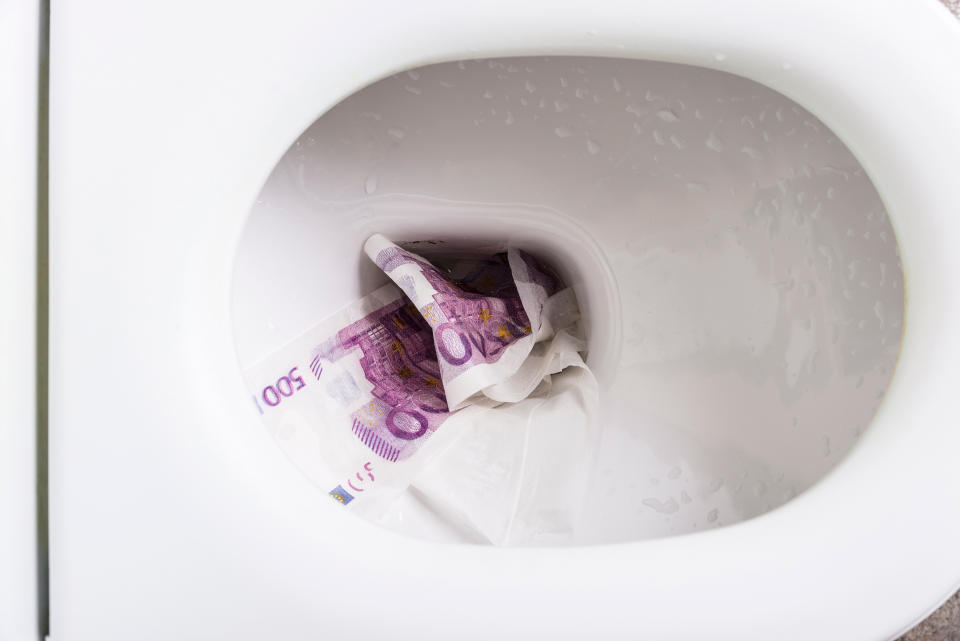Dirty money? Police find thousands of euros flushed down toilet in Geneva

As any parent will tell you, all sorts of weird and wonderful objects can end up being flushed down the toilet when kids are around.
But Swiss police are trying to work out how thousands of euros ended up being flushed down toilets in Geneva, and it doesn’t look like any toddlers are involved.
MORE: Holidaymakers out of pocket as airport euro exchange rates hit fresh low
A small fortune in €500 (worth about £440) notes was discovered, having been cut up and dumped down the toilets in a branch of bank UBS and surrounding restaurants in the city’s financial district.
Vincent Derouand, a police spokesman, told Reuters: “We are not so interested in the motive but we want to be sure of the origin of the money.”
While cutting up banknotes and sending them off via the u-bend is not illegal in Switzerland, it is of course highly suspicious – rarely has the term ‘dirty money’ seemed quite so appropriate.
MORE: Sterling jumps to post-Brexit high as Bank official hints on rate rise
The possibility of money laundering is only heightened when you consider that the €500 notes are due to be withdrawn by the European Central Bank next year due to fears that they are being used most often for illegal activities.
According to the Tribune de Geneve newspaper, investigators believe the cash belonged to Spanish women who had kept it in a safety deposit box years ago.
A lawyer acting on behalf of the women is reported to have handed over money to cover the cost of repairs to the toilet facilities at the bank and the affected restaurants.

 Yahoo Finance
Yahoo Finance 